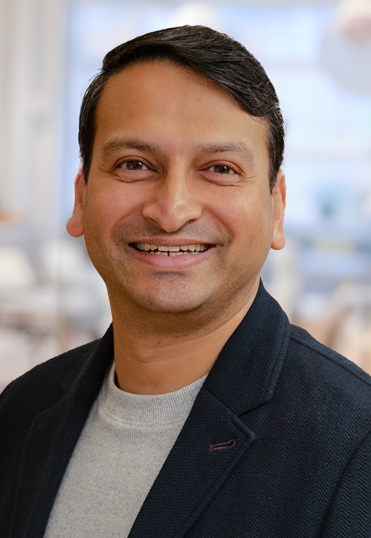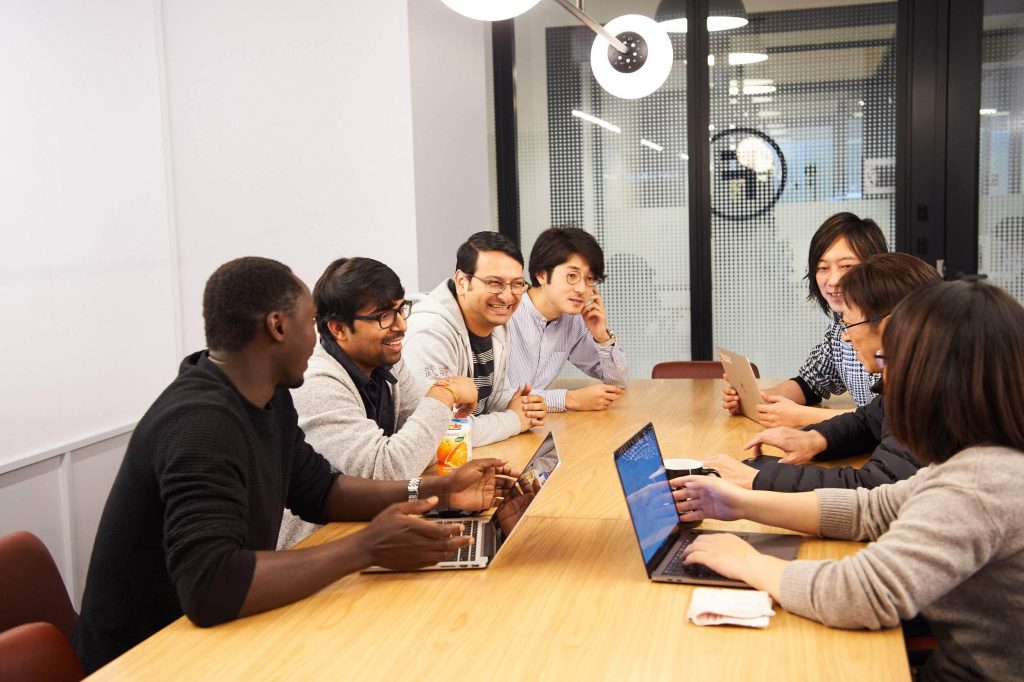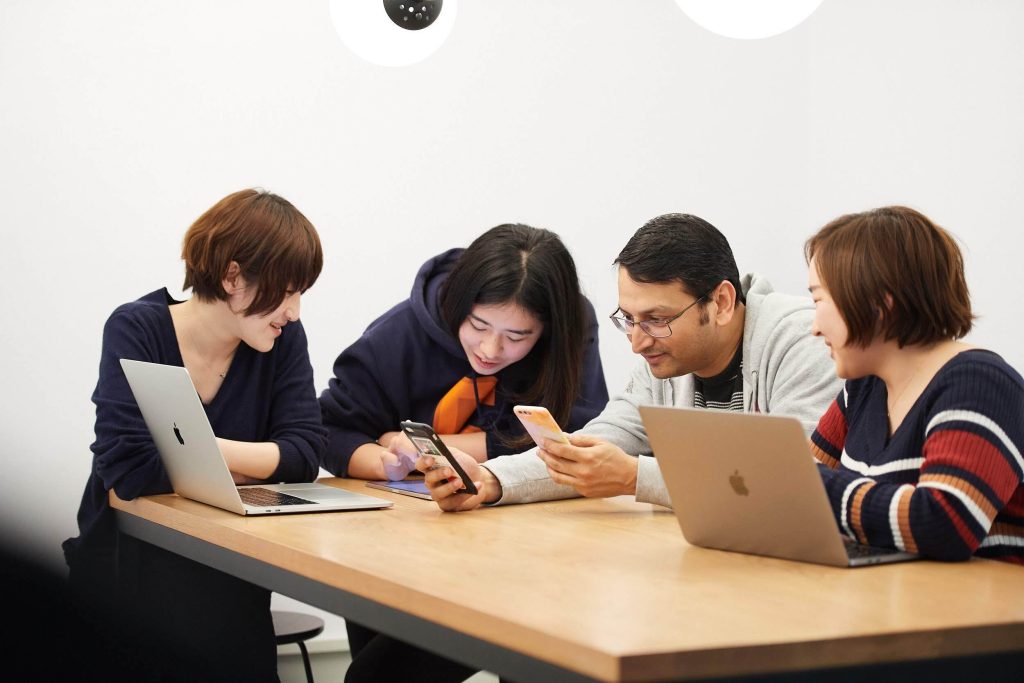(June 20, 2024) It is just 9 a.m. in Toronto, but Aditya Mhatre is already settled in at work, attending calls and taking stock of his in-work tray. “I tend to start early,” he tells Global Indian, adding, “I have the school drop-off run in the mornings.”
Affable and armed with a smile, it takes a while to sink in that he is the co-founder of a fintech startup and has had a stellar career across different industries. But then, the 43-year-old wears his success easy, and it is this agility that has enabled a trajectory that started as a student at Panvel in Mumbai and took him across the world.
As the co-founder of Beacon, a platform that is transforming the immigration experience in Canada, Aditya is doing what he has done throughout his career: leveraging technology with a human touch to provide out-of-the-box solutions for customers.

Aditya Mhatre
Driven, passionate, and tenacious, the entrepreneur’s biggest strength remains adapting to the environment around him, which has ensured success at every step.
Early Learnings
Growing up in Panvel, then a small town where everyone knew everyone, Aditya had a childhood typical of 80s and 90s India, where he got around on a cycle, played cricket with friends, and had a leisurely childhood. Things changed when he went to Belgium for a year as a teenager as an exchange student. He recalls, “I had to live with a family that spoke only French, and I remember when I first went to their home, they served me a meal of bacon with lettuce, which I had because I could not refuse their hospitality.”
It is also where the innate flair of Aditya to thrive in unexpected circumstances came to the fore. Within three months, he learned French, adapted to the new surroundings, and soaked in all the experiences the international exposure accorded him.
Once back, he pursued his degree in commerce, and one thing led to another before he went to Carnegie Mellon for his master’s degree. While a commerce graduate applying for a technology degree was an anomaly, it was a time when the IT companies in India were coming of age and piqued by the phenomenon, Aditya taught himself to code (by learning books; no YouTube tutorials back then!) and soon found himself at one of the best universities in the world.

Aditya Mhatre with his team
He recalls, “The talent at the university was surreal. As most of the students were from a science or math background, I was among the few who were not and had to work doubly hard to ensure that I made the grade.” Grade he did make and life at the university also taught him other pertinent life lessons, such as the importance of networking and building a community.
Exploring and finding himself
In 2005, in an attempt to stay in touch with his roots and happenings in India, Aditya, along with his friend Abhishek, started the podcast Indicast. One of the first Indian podcasts, it still runs strong, touching upon a variety of topics, including current affairs, sports, and Bollywood.
“Podcasts were quite the flavour of the season back then, with Wired magazine putting them on its cover and Apple I-Tunes just getting popular,” he notes and adds, “We were one of the early adapters, and it was a time when many engineers from IT started to move abroad in large numbers, so we had a great captive audience.”
Aditya then moved to India and worked with Reliance Jio (which was still in its formative stages), where he was employee number 10, and the company basically operated from a conference room. It was there that he worked with Reliance Industries Chairman Mukesh Ambani, who mentioned in a meeting that “What you don’t write, you cannot manage!”— an advice Aditya follows till date!
Moving abroad, again
After working in India for a while, Aditya moved to Canada to pursue an MBA from the University of Toronto — something he calls one of the best decisions he made. It was an email to Vijay Shekar Sharma, the founder of Paytm, that changed the trajectory of his career.
“I emailed Vijay, evincing an interest in working with him as Paytm just launched its operations in Canada, and got a reply within 15 minutes. I joined the company the next day,” he smiles. His role in the initial days was all encompassing; from ordering toilet paper to drafting the HR policy and conducting an internal audit, he did everything that came his way.
Aditya Mhatre with co-founder of his startup, Beacon
After the Paytm launch in Canada in 2017, when they added over 300,000 users to the system, opportunity came calling to Aditya in the form of a move to Japan to oversee Paytm operations in the country. Never one to say no to a challenge, Aditya moved along with his family to Japan, once again finding himself in a new country and starting all over again.
In Japan, where 78 percent of the payment was still in cash, the entrepreneur had his hands full building the team and encouraging an entire economy to transition to digital payments. Delivering on objectives and launching key products, Aditya managed to build a QR-based mobile payment system that helped a seamless transition to online payment.
Back to (second) home
After a stint in Japan, Aditya felt it was the correct time to return to Canada, as it was the right move for the family. When he moved back to Canada at the tail end of COVID, when immigration had spiked, Aditya noticed the challenges and discrepancies in the system that immigrants had to face. From opening bank accounts or applying for credit cards to getting information from the government, everything was a challenge.
It was to address this challenge that he co-founded Beacon, a start-up aimed at transforming the immigration experience in Canada through a comprehensive platform that simplifies their financial and informational needs. He explains, “We use the power of technology to solve real-world problems. Be it getting a telecom provider or finding accommodation, it is a one-stop shop for those coming to Canada for the first time. The premise of Beacon is simple: how can we make the first 100 days easy in a new country?”
As a true global Indian who has worked in different countries, Aditya says that it is important to understand and adapt to local cultures. “What works in one country will not work in another. The nuances are specific to each country. As more Indians are moving abroad, it is imperative to understand that soft skills matter and the strength of building relationships.

Aditya Mhatre with his team
When not working, the entrepreneur loves spending time with his wife, Prachiti Mhatre, and 10-year-old son Kaivalya (or Kai as he is lovingly called), celebrating Indian festivals and playing golf with his friends.
While Aditya prepares for his busy day ahead, it is easy to understand his mantra in life: to always be a student and seek knowledge, which helps him succeed. Be it learning Japanese to assimilate into a new culture, upskilling himself with coding or ensuring that he does not lose touch with his roots, he is the perfect example of a new-age Indian, one who is comfortable in his skin in any country.
Aditya suggests three things that every Indian moving abroad should keep in mind:
- As you grow older, building relationships might be difficult. But talk to people around you, form bonds, and ensure that you make enough social connections.
- Nothing replaces hard work, and the truth is that immigrants definitely need to work harder than locals.
- Pick up new skills, learn new languages, and understand the dynamics of the country you move to. It always helps to grow, both personally and professionally.
Follow Aditya Mhatre on LinkedIn




